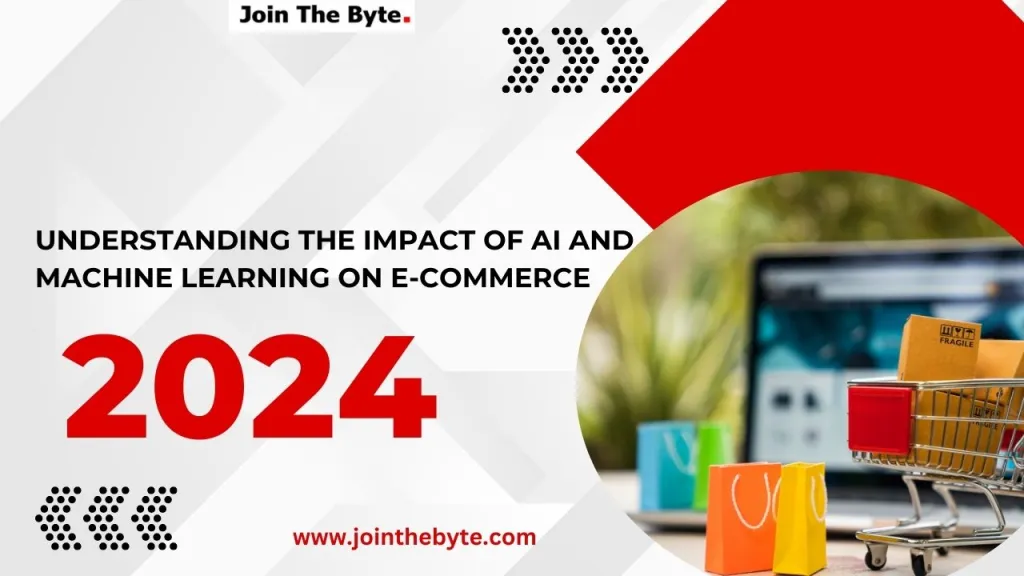
In recent years, artificial intelligence (AI) and machine learning have revolutionized the e-commerce landscape. These cutting-edge technologies have not only enhanced the shopping experience for customers but also provided businesses with powerful tools to optimize their operations and drive growth. This blog explores the significant impact of AI and machine learning on e-commerce, focusing on how these technologies are shaping the future of online retail.
The Rise of AI in E-Commerce
AI in e-commerce is no longer a futuristic concept—it’s a present reality. Retail giants and small businesses alike are leveraging AI to stay competitive. From chatbots and virtual assistants to predictive analytics and personalized recommendations, AI is transforming the way businesses interact with customers.
- Chatbots and Virtual Assistants Chatbots and virtual assistants have become essential tools for e-commerce businesses. These AI-driven entities provide instant customer support, answer queries, and guide users through their shopping journey, all in real time. By enhancing customer service, chatbots improve user satisfaction and increase conversion rates.
- Predictive Analytics Predictive analytics uses machine learning algorithms to analyze vast amounts of data and predict future trends. For e-commerce businesses, this means better inventory management, targeted marketing campaigns, and improved sales forecasts. Predictive analytics helps retailers understand customer behavior and make data-driven decisions.
Personalizing the Shopping Experience
One of the most profound impacts of AI and machine learning on e-commerce is the ability to provide personalized shopping experiences. Personalization not only delights customers but also drives sales and fosters loyalty.
- Product Recommendations Machine learning algorithms analyze customer data to offer personalized product recommendations. By understanding a customer’s preferences and browsing history, AI can suggest products they are more likely to purchase. This tailored approach increases the average order value and enhances the shopping experience.
- Dynamic Pricing AI enables dynamic pricing strategies that adjust prices in real-time based on demand, competition, and customer behavior. This ensures that e-commerce businesses remain competitive while maximizing profits. Dynamic pricing strategies are particularly useful during peak shopping seasons and promotional events.
- Personalized Marketing Campaigns AI-driven personalized marketing campaigns target customers with relevant offers and promotions based on their preferences and buying history. This targeted approach increases the effectiveness of marketing efforts, leading to higher conversion rates and better customer engagement.
AI Tools Revolutionizing E-Commerce
A myriad of AI tools is available to e-commerce businesses, each designed to address specific challenges and optimize operations. Here are some essential AI tools that are transforming the industry:
- Visual Search Visual search tools allow customers to upload images and find similar products within an e-commerce store. This technology enhances the user experience by making it easier to find desired products, even when customers lack specific keywords to describe them.
- Inventory Management Systems AI-powered inventory management systems predict stock needs, optimize warehouse operations, and reduce overstock and stockouts. By streamlining inventory processes, these systems ensure that businesses can meet customer demand efficiently.
- Fraud Detection Systems AI-driven fraud detection systems analyze transaction patterns to identify and prevent fraudulent activities. These systems protect e-commerce businesses from financial losses and safeguard customer data, building trust and credibility.
Conclusion
The integration of AI and machine learning in e-commerce is driving significant advancements in how businesses operate and engage with customers. From personalized shopping experiences to advanced AI tools, these technologies are transforming the industry and setting new standards for online retail. As AI continues to evolve, e-commerce businesses that embrace these innovations will be well-positioned to thrive in an increasingly competitive market.
